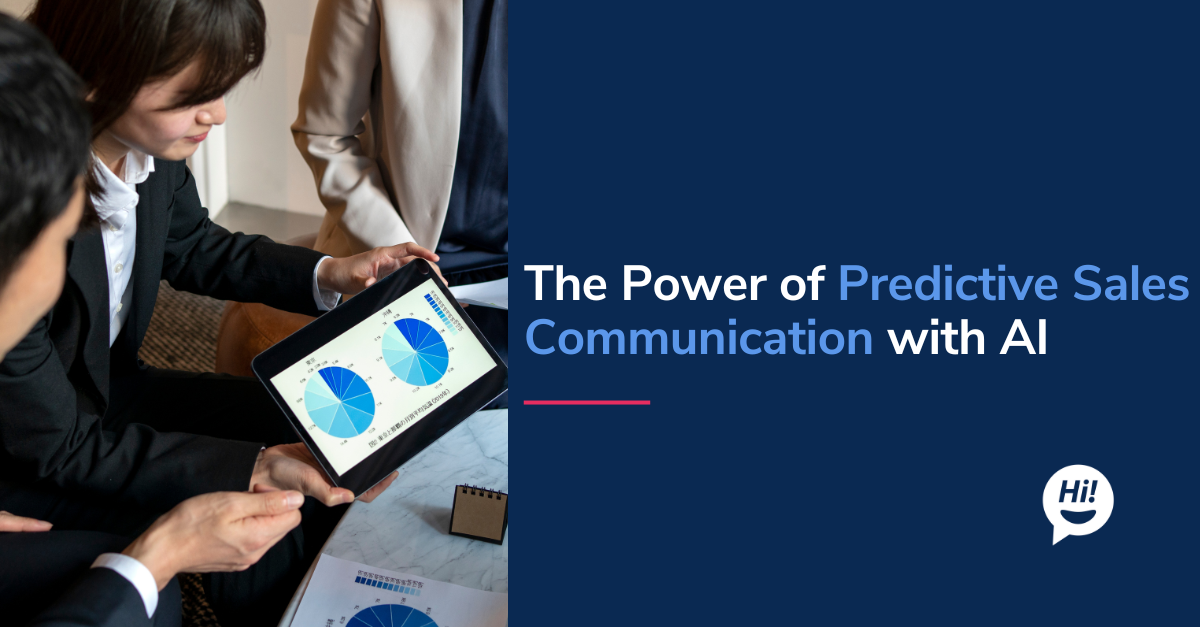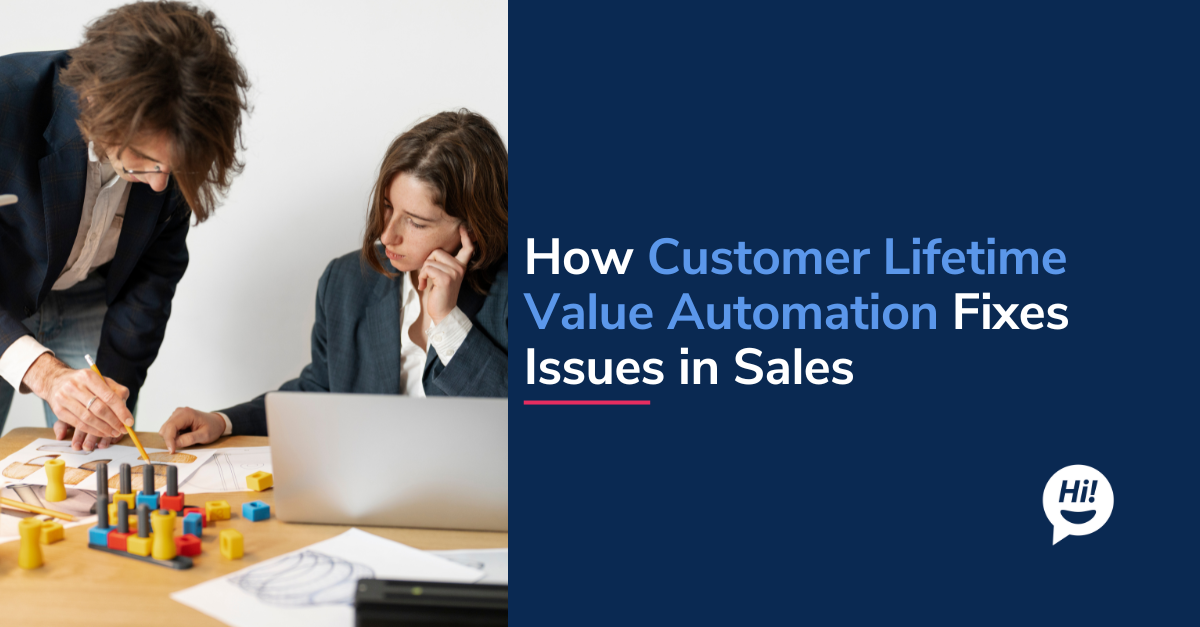Marketers face many challenges as prospect behaviors are constantly shifting. Marketers need consistent and reproducible data collection methods. But how do you collect the data you need when your prospects and leads are abandoning your landing page forms? Are there other ways to collect data? Gathering the data you need to connect your prospect with the right agent or department can be challenging. On top of all of this, keeping collection methods compliant with your legal team is a must, but how is this done? If you're searching for answers to these questions, you have come to the right place.
Data is essential because it exposes users' interests, wants, and needs. First, let's define what data is before we continue:
In today's technological environment, data consumes us in every online activity. From 2010 to 2020, data usage increased from 1.2 trillion gigabytes to almost 60 trillion gigabytes. This represents a staggering 5000% increase in just a span of ten years! There are many ways to capture data, but ethically, you should be made aware of methods that aren't allowed.

Legal Restrictions
When collecting data, it's imperative to adhere to all data privacy laws within your area to avoid any legal ramifications. Typically, just providing an updated privacy policy isn't good enough. There are many laws and regulations in the United States controlling the flow of data. To understand which rules to follow, look at restrictions for your region/state or specific industry. To view the policies in your area, click here. For universal reference, the Data Privacy Act of 2012 established three main principles to follow that apply to most online data collection scenarios:
- Transparency - any subject must understand the nature, purpose, and extent when it comes to the collection of their data.
- Legitimate Purpose - the use of the data (made known to the subject) needs to have a specific purpose that doesn't conflict with the law, moral standing, or public policy.
- Proportionality - the collection of data must not exceed what's necessary to be received for the designated purpose. This prevents excess and unnecessary data from reaching the hands of unauthorized users.
If you’re unsure or have specific questions regarding the legality of the data that you are collecting, it is advised that you consult with an attorney. There are numerous low-cost resources on the web that will review your company's use of data and advise you accordingly.
Common Data Capture Practices
Below are some of the most common ways to collect data and why you would want to. Remember always to follow local laws and regulations and verify any uncertainties with a legal representative. All third-party data should be secured and protected as if it were your own. The following methods yield a wide range of data. It's up to you to determine which ones fit your needs.
Collecting Data On A Website
Cookies and Web Beacons
Cookies and web beacons allow a website administrator to view visitor activity throughout a website as well as retrieve information about past and future browsing history. Many marketers use this form of data collection for advertising purposes. If a previous user returns to your website, not only will their preferences be remembered, but the data may also indicate that the visitor is high-intent.
Website cookie data is commonly collected on eCommerce websites and used for remarketing which is extremely easy when you know exactly who came to a website, at what time, looking at what specific product.
Form Fills
Many websites have contact forms embedded on them. This data collection process is unique because you are receiving the data from willing participants. In return for the submitted data, the person expects something of value. Common forms found on websites include contact, shopping/shipping, subscription, registration, survey, and many others.
Form fills are the most commonly used method for data collection as they are easy and provide benefits to both parties. They also allow a site administrator to enhance the data that is received from the visitor. Other types of collection methods offer limited information. With forms, you can specify the exact information that you're looking for as forms are very customizable and vary in size and functionality.
Web Chat
Web chat is customizable and built to fit a specific company's needs. More than likely, a chat box will encourage some form of data transmission, whether it's a simple what's your name and phone number to more complex and confidential data collection such as social security numbers and addresses.
Using web chat is an excellent way of engaging your website visitors through automation and live chat. Botsplash offers highly customizable web chat options for medium to enterprise-sized companies in numerous industries such as mortgage, automotive, real estate, insurnace, solar, and more.
Web chat clients typically use the following data collection strategies when using Botsplash:
- Lead Generation
- Contact Form
- Appointment Booking
- Exit Surveys
- Payment Form Fills
- Sharing Documents
Collecting Data Outside of a Website
Email is one of the original forms of data collection. There are numerous platforms, resources, and tools that pull helpful data from outbound email efforts. Commonly used metrics for this channel include open rates, when a message was opened, clicks, repeat clicks, and more. Additionally, an email campaign's data collection capability could be further enhanced through the use of tracking tags or website modules.
While email does not give complete transparency into the journey and behavior of a person, it can certainly help when tied with additional data collection methods. Top software options include Constant Contact, Mailchimp, Hubspot, and GetResponse.
Social Media
Social media is everywhere these days. It's hard to make it through a day without liking, sharing, commenting, tagging, or subscribing to something on social media. Every time one of these actions is completed, someone collects that data. Your business needs to take this engagement and use it as a resource for marketing, sales, and future advertising.
The data collected should act as an indicator of the effectiveness of your advertising efforts. Because the engaging party is required to own a profile, you also have complete access to valuable information regarding who they are, what they are interested in, and other social media activity. Additionally, if your website offers a way for users to log in, you can provide an option to sign in with your social media account. This will further enhance the data received through your website, as the channel used to sign in will provide all needed information.
Botsplash clients often integrate with Facebook Messenger to enhance their communication and data collection.
Purchased Data
Purchasing data can be controversial. Data brokers collect information from every corner of the internet and then immediately sell it. No doubt purchasing data can provide instant access for your company, but is it qualified? Since you didn't collect the data yourself, you have no idea if the demographic claims are credible, voiding your targeting efforts. These data sets are costly, sometimes making up the majority of a company's media budget. It's known that collecting and selling data about people is a $200 billion industry.
It's recommended that if you go with a data purchasing strategy, to know where the data was obtained, what were the legal disclosures, and to not purchase any sets that are too broad. Narrowed audience segments are known to be more accurate with fewer outliers.
Additional Resources
Google’s Business Messages offer an excellent opportunity for data collection right from the number one search engine on the web. Botsplash allows its users to be where your customers are by providing the option for consumers to chat with available agents through the Google Business Messages integration. To learn more about the benefits that Google’s Business Messages can offer, click here.
Conclusion
Data collection can benefit any marketing or sales team if appropriately conducted. Using the right strategy, the information collected can help identify, target, understand, retain, and exceed customer expectations. As long as you follow local and state guidelines (US only), you will be on your way to more closed deals and a better understanding of what your consumer actually wants from your company.
If you are using Botsplash and have questions about data collection through our platform, contact our Client Success Manager, Conor Mooney, by clicking here. You can also reach out to us regarding any setup, web chat customization inquiries, or to schedule a no obligation demonstration of our platform.
To learn more about Botsplash click the button below to schedule a demo with our team.








